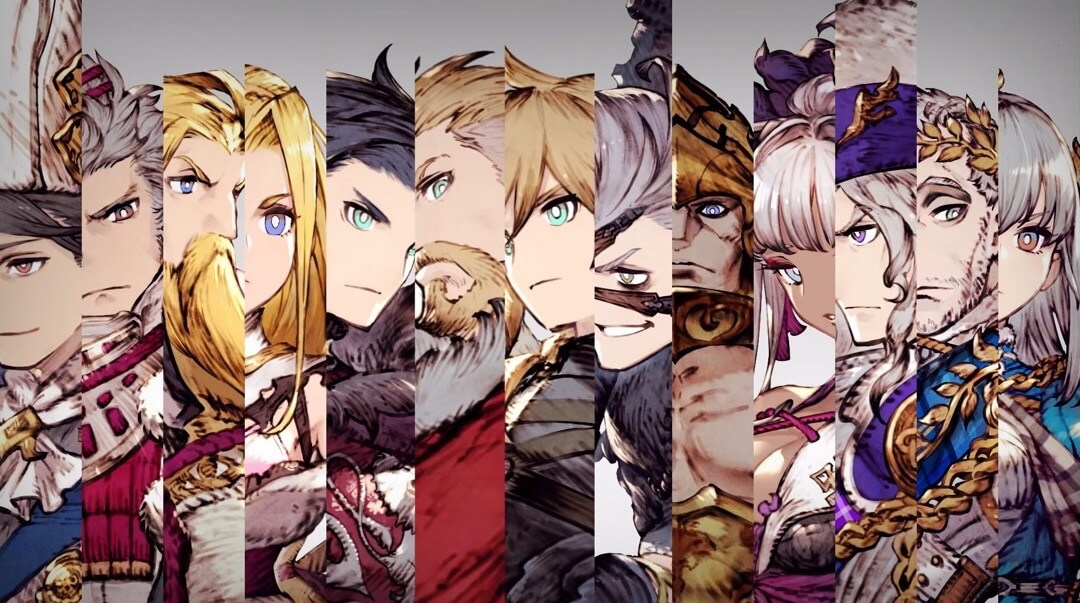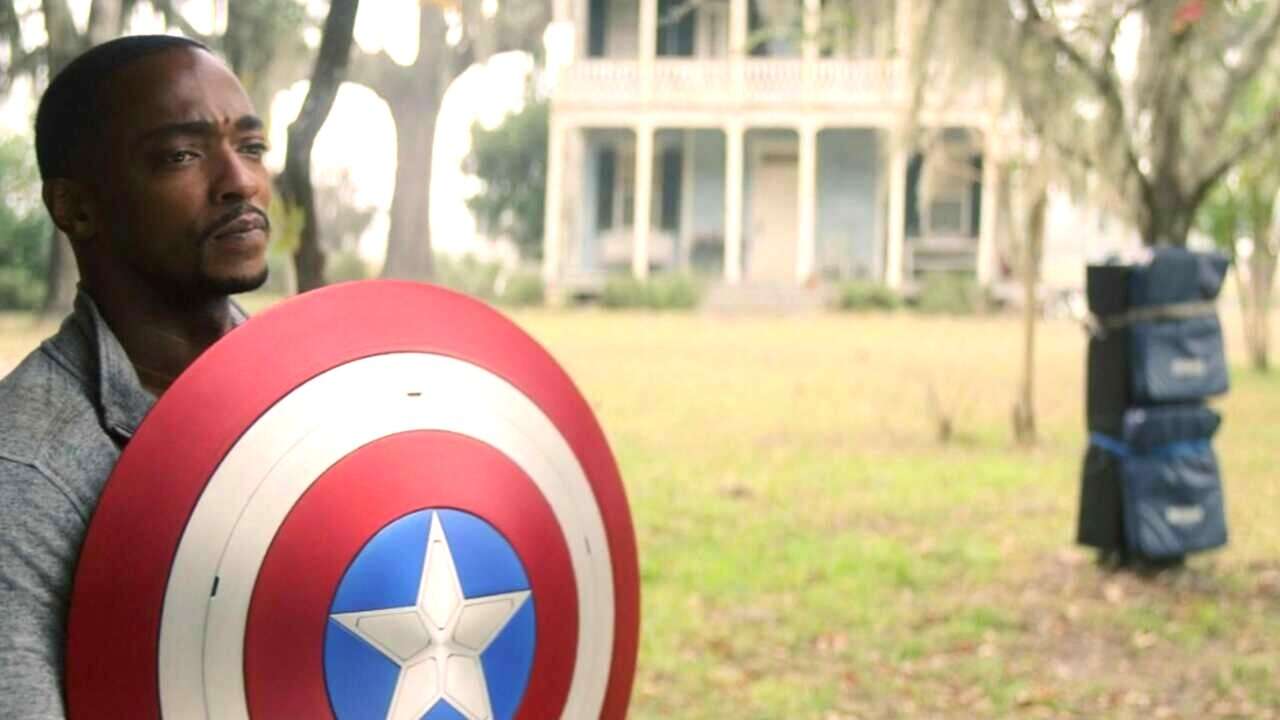All I could really think while I was watching the 40-minute-long gameplay breakdown for Saints Row was, “This looks…okay.” It definitely doesn’t seem like a bad game–it actually seems to be perfectly sound in terms of gameplay–but nothing about Saints Row looks all that interestingly new. Granted, I’m basing this opinion only on what I saw (I didn’t get the chance to play the game during the preview), so take that with a grain of salt. Saints Row could actually feel a lot better than it looks; but right now, it just looks mediocre.
As I watched developer Volition dissect its latest open-world action-adventure title, the gameplay all seemed uninspiringly familiar for the franchise. I’ve seen Volition make this game before–2022’s Saints Row looks a whole lot like 2011’s Saints Row: The Third, but prettier. The brand-new setting and various new characters at least hint at the potential exploration of intriguingly fresh stories, but, on first glance anyway, the southwest United States-inspired Santo Ileso seems to be unfortunately underutilized.
In Saints Row, you play as the former member of a private military corporation organization called Marshall Defense Industries. You’re now rooming with talented driver Neenah, DJ Kevin, and wannabe business entrepreneur Eli. Like you, Neenah and Kevin are former gang members–Neenah used to ride with the car-obsessed and fitness-oriented Los Panteros, while Kevin fought alongside the nightlife-loving and violently anarchist group known as the Idols. Eli, meanwhile, is just a smart guy trying to use his business sense to turn a profit in the city. Tired of pulling off small-time robberies and crimes to pay rent, the four decide to claim power for themselves and form a fourth Santo Ileso gang: the Saints.
This latest Saints Row is a reboot of the franchise–the series hasn’t seen the release of a new mainline entry since 2013’s Saints Row IV. While Saints Row started out as an open-world game akin to Grand Theft Auto 3, each subsequent entry got goofier and weirder, culminating in Saints Row IV where you parlayed your role in stopping a nuclear attack on the United States by becoming the country’s next president and then fighting off an alien invasion from a Matrix-inspired virtual reality. This new Saints Row steps back from those more fantastical sci-fi and absurdist elements the series embraced, returning to the relatively more grounded storylines and gameplay seen in the first two Saints Row games.
Unfortunately, that has seemingly translated into a by-the-numbers open-world crime game. Based on the presentation I saw, it looks like Saints Row is just a series of loops. You go to your gang’s hideout, figure out what you want to do next, jump in your car, drive to a point on your map, complete the mission, and return to base to pick the next mission. The world doesn’t seem to react to you–beyond the cops attacking you if you draw too much heat–and the game features the same handful of missions that the Saints Row games have always had like “cause a certain amount of damage in a limited time” or “fly to the bad guys’ base and blow it up” or “save your friend before time runs out.” As you complete these tasks, you level up and unlock new skills and earn money to spend on more outfits and weapons which you can then bring into more missions like the ones you just completed, only harder. And you never actually need to understand the lay of the land or take note of the scenery because the world is one of destinations to go to and boxes to check.
The game’s story isn’t even as open-ended as the earlier games in the franchise. “The story is more linear than in past [Saints Row] games, but there will be points in the crit path where the player can choose the order in which they complete missions,” creative director Brian Traficante told me.
Combat seems like it could be pretty fun, as it mixes in unorthodox weapons alongside more traditional firearms. There’s nothing quite as extravagant as what was seen in Saints Row: The Third and Saints Row IV, but there are a few cool toys like a device that allows you to shoot through walls and a football that latches onto enemies and sends them flying into the air. But I’m worried that combat could get stale after a while. I watched what combat looked like against both the Los Panteros and the Idols and it seemed like the same run-and-gun strategy worked for both gangs, despite their members being quite visually different.
And to my annoyance, it seems like your character has the unfortunate habit of repeating the same quips in combat over and over. While watching the presentation, there was a moment where the playable character was fighting the Los Panteros, who had just stripped her car. During that minute-long fight, she repeated how she was mad because she had needed that car at least three times. To top it all off, Neenah kept offering the same feedback during the fight several times too. It was like an unwanted throwback to the early 2010s when every action-adventure game did that.
I’d forgive such a traditional gameplay loop and outdated features if Saints Row at least did something interesting with its mechanics or mission structure but the game doesn’t seem to substantially build upon any aspect of the series’ formula. There are more guns to buy and types of perks to unlock, but combat is still primarily a third-person shooter against bullet-spongey enemies who just sort of rush you without a plan. There are absurd side missions dotting the map, but they all appear to center around blowing stuff up or shooting from the passenger seat of a car while an ally drives you around and talks to you about something. And the brand-new means of navigation–like the wingsuit–aren’t entirely novel, as they seem to play a lot like the superpowers in Saints Row IV.

When using the wingsuit, you can maintain your time in the air by bouncing off the heads of people below.
In the end, this is a game about steadily taking control of a city by increasing your influence throughout several districts, each of which is divided up at the start of the game by the other gangs. You know, just like pretty much every other Saints Row game.
“Crime is the primary theme, and we stay relatively close as far as motivations for the players and their world interactions,” Traficante said. “Most of the directed activity, however not all, will be actions steered towards progressing the Saints’ criminal empire.”
If it wasn’t for the graphics, this new Saints Row would seem like a game I had played almost 10 years ago. I don’t think a new Saints Row has to be completely different from its predecessors in order for the series to be relevant in 2022, but the lack of any sort of apparent evolution to the franchise’s mechanics and gameplay leaves it looking dated.
I think the game may struggle with its narrative tone as well. Volition is aiming for a story and gameplay that feel wackier than Saints Row 2, but less so than Saints Row: The Third. The problem then becomes, however, that the game is too playful for a compelling dramatization of four college-aged adults building a criminal empire and at the same time so serious that it doesn’t quite deliver enough laughs to be a comedy.
If you’re going to do a story like that–something akin to a Fast & Furious movie–you got to have compelling characters and relationships worth giving a damn about. And Saints Row’s main cast has not impressed me so far.
That’s largely because Saints Row features a very familiar set-up for the series, with this new protagonist possessing the same charismatic personality and sociopathic tendencies as the franchise’s original hero. Your new allies all seem to resemble previous Saints Row characters as well–Neenah’s brash attitude and quick temper is reminiscent of Shaundi, Kevin’s energetic hot-headedness and love of violence is a lot like Gat, and Eli’s dry sarcasm, non-gang background, and more supportive role within the team makes him just like Kinzie.

Neenah will turn to you for help when she’s ready to take revenge on her former gang.
My hope is that these early comparisons are a means of eventually subverting players’ expectations, encouraging long-time Saints Row fans to embrace a brand-new variation of the Saints with a comforting familiarity before then presenting the presumably welcome surprise of exploring how these Saints are refreshingly different. But there’s really no way of knowing whether that’s the case until the game actually comes out. So far, this feels like territory we’ve covered before.
This new Saints Row seems to most differentiate itself with its setting. The original Saints Row and Saints Row 2 are located in the fictional city of Stilwater, while Saints Row: The Third and Saints Row IV moved the franchise to Steelport–in both cases, the cities are inspired by the northeastern United States, featuring tall skyscrapers, paved freeways, and quaint suburbs–all created with primarily blue, purple, and grey colors. Santo Ileso, meanwhile, is inspired by the southwestern United States–so there are still skyscrapers, but much of the architecture outside the core of the city is smaller and features more Mexican- and Spanish-inspired designs. The area features locations that are noticeably less urban as well, with several districts located in the outskirts of a massive desert, and everything is a lot more vibrant with a brighter color palette of oranges, yellows, and reds.
It’s here, in this new setting, that Saints Row should show the most intriguing potential–the developer is touching on a completely different culture, presenting the possibility for new types of stories, gang activities, musical expression, and player interaction to freshen up a nearly two-decades-old franchise. And though I haven’t been convinced Volition has done that here, I can tell that a great deal of effort went into creating the set-dressing for Saints Row’s story.
The team has achieved what looks to be quite a detailed backdrop with this new setting, using research of the southwestern US and the stories of people who live there to inform the construction of Santo Ileso. “For reference footage, we just went everywhere,” Saints Row principal writer Jeremy Bernstein said. “So, southern California, New Mexico, Nevada–a bunch of different cities, a bunch of different elements, a bunch of different landscapes, and two very different deserts.”
The studio seems to have taken note of the prevalence of the Spanish language in the region as well. “We have a Mariachi [radio] station,” Traficante said. “We have Spanish stations and you’ll hear a lot of Spanish speaking on the streets and in the music and Mariachi players and things like that. So we try to bring all that into spaces.”
That said, in my conversations about Saints Row’s story and setting with Traficante and narrative director and writer Jennifer Campbell, certain comments gave me pause. Like, when I asked how the game would implement Spanish into conversations, Campbell mentioned that Neenah specifically switches from English to Spanish “if she gets really angry about something,” and added that initially Saints Row was going to feature a mission where Neenah got very drunk and would thus only speak in Spanish for the entire time.
Neenah is the defacto Spanish speaker in the group, appearing to be the only main member of the Saints who is canonically Latinx (the player character can be customized to look like pretty much anybody, so they could also be if you wanted). It’s uncomfortable to see Saints Row willingly dabble in the media tropes surrounding bilingual Spanish speakers–specifically that they only use Spanish to express vehement emotion–with the one Spanish-speaking member of its main cast.
It doesn’t create much confidence that Volition has captured the authenticity of the region or the people that live there, though I’m just happy it looks like Neenah isn’t made to punctuate her sentences with Spanish swear words or talk about how “loco” everything is.
I could very well be worried about nothing, of course. Despite the overwhelmingly white panel of developers in attendance for the Saints Row preview, Traficante assured me that the team has done the homework. “People of color did have a hand in crafting these characters,” he said. “The writer’s room is currently the most diverse it has ever been. I want to say 80% of the writing has been done by women and people of color. We also use internal resources, from a panel focused on inclusivity to the many employee resource groups we have for women, BIPOC, and LGBTQ+. If we find ourselves in territory that is unknown to our personal experiences, we will utilize consultants.”
I think my worries in this regard tie back to the narrative of Saints Row. Volition is borrowing inspiration from multiple locations to build a fantastical recreation of the southwestern United States–Traficante even says that at the macro level, Saints Row is “more fantastic,” while certain elements and locations are only more genuine at the micro level. “It’s a range of accuracies mashed together to serve the fantasy of the American Southwest,” he said. I’m willing to give Volition the benefit of the doubt but that sounds like the team has left themselves an out if, when the game releases, people discover the developer has only stolen the imagery and sounds of a location without also putting in the effort to honor the culture and people it’s taking inspiration from.
In the end, it all ties back around to my initial thought of the game: It looks mediocre. The gameplay and characters feel uninspired, simply repeating what the franchise was doing over a decade ago. And the most intriguing prospect of this game–that it moves the Saints to a brand-new location and culture–looks like it may be undercut by the lack of authentic storylines and characters.
Regardless, we’ll get our hands on Saints Row soon enough. After being delayed, Saints Row is now scheduled to release later this year, launching for Xbox Series X|S, Xbox One, PS5, PS4, and PC on August 23.
Source: Gamespot





















